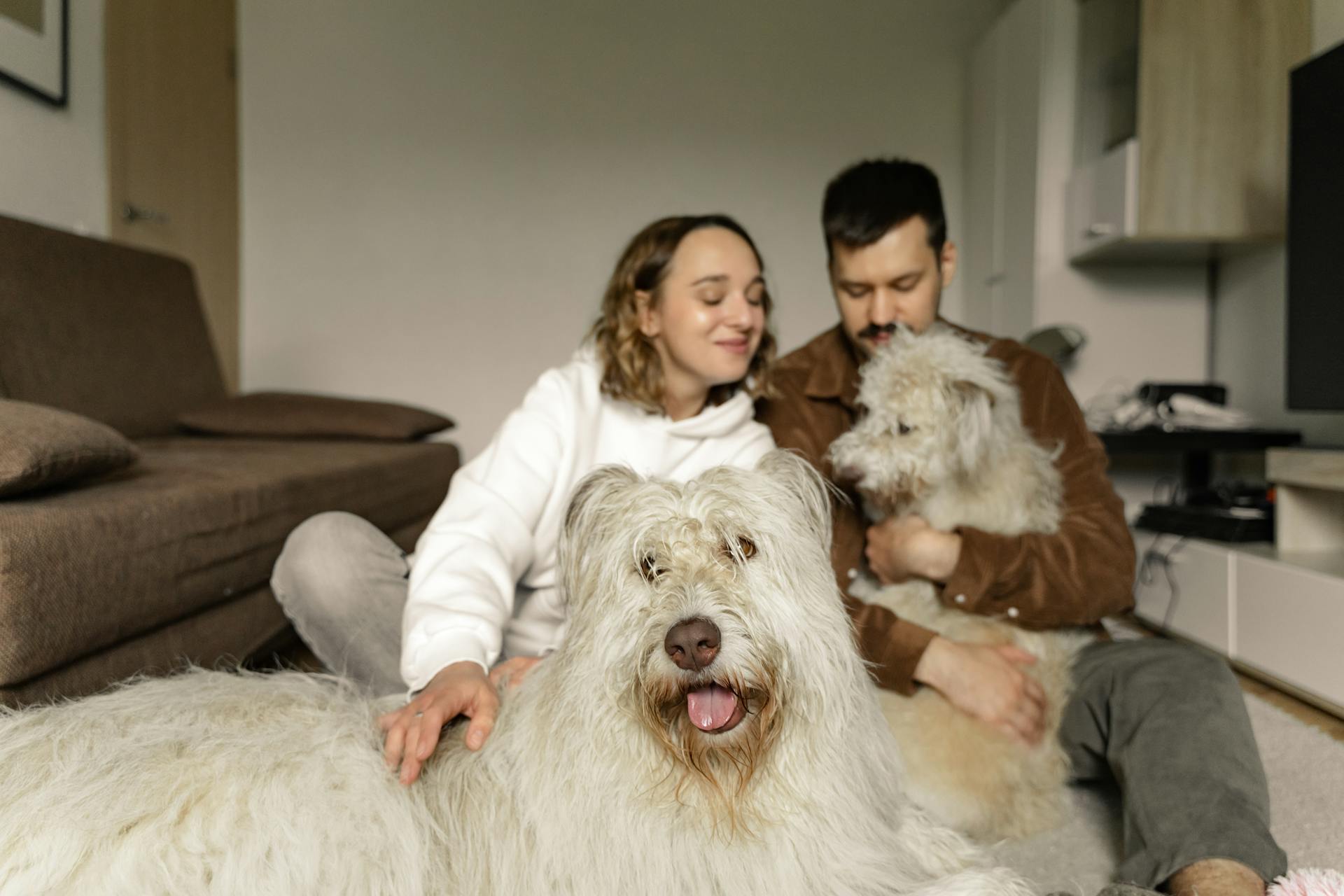
Dogs eating sand can be a puzzling behavior, but it's often a sign of an underlying issue. Some dogs may eat sand due to a condition called pica, which is characterized by a persistent desire to eat non-food items.
Pica can be caused by a variety of factors, including nutritional deficiencies, boredom, or anxiety. In one study, researchers found that dogs with pica were more likely to have a history of gastrointestinal issues.
Dogs may also ingest foreign bodies, such as sand, due to their natural instinct to forage and explore their environment. This behavior can be especially common in dogs that spend a lot of time outdoors.
According to a veterinarian, some dogs may eat sand as a way to self-soothe or calm themselves down. This is often seen in dogs that have anxiety or stress-related issues.
What is Pica?
Pica in dogs is a condition where they crave and compulsively eat items that are not typically edible or considered food.
Dogs with pica often eat wildly inappropriate things that offer nothing in the way of nutrition, like wood, towels, or even plastic.
Some dogs might crave and eat only one thing, like socks or paper, while others are a little less discerning and will eat various non-food items.
Canine pica is a complex disorder with potentially life-threatening consequences if it goes untreated, including severe intestinal blockages and irreversible damage to teeth.
Pica dogs can even perforate their stomach or intestines, which requires immediate treatment.
Treatment and Prevention
Treating pica in dogs depends on the underlying cause, which may be a medical issue, emotional or behavioral problem, or stress-related issue.
If your dog is eating sand due to a medical issue, such as a nutritional deficiency, treating the underlying condition should eliminate the behavior. You can try dietary supplements, a comprehensive dietary change, or adjusting your dog's feeding schedule.
Preventing your dog from eating sand requires a combination of management and positive reinforcement. This includes preventing access to sand and redirecting your dog's attention to more appropriate objects, such as chew toys or food puzzles.
You might like: Why Does My Male Dog Lick My Female Dogs Pee
To support your dog's health and decrease their desire to ingest sand, regular veterinary checkups, parasite prevention medication, and a high-quality, veterinary-approved diet are essential. Providing ample exercise, mental stimulation, and veterinary-approved supplements can also help.
Here are some key steps to prevent your dog from eating sand:
- Feed your dog a high-quality, veterinary-approved, complete, and balanced diet
- Provide regular veterinary checkups to rule out underlying health problems
- Give your dog monthly veterinary-approved parasite prevention medication
- Provide ample exercise, chew toys, and mental stimulation
- Supervise your dog when they are outside around sand
Treatment of Pica
Treating pica in dogs requires a thorough understanding of the underlying cause.
If a medical issue is to blame, treating it should eliminate the pica behaviors. Medical reasons for pica in dogs are the easiest to treat.
Treating behavioral pica can be more challenging, but with consistency and perseverance, it's possible to help your dog. Behavioral reconditioning, reducing stress and anxiety, and making changes to the environment can be helpful.
Providing a safe and appropriate outlet for your dog's anxiety is critical. This can be achieved through plenty of exercise and play, as well as providing appropriate chew toys for self-soothing and stimulating playtime.
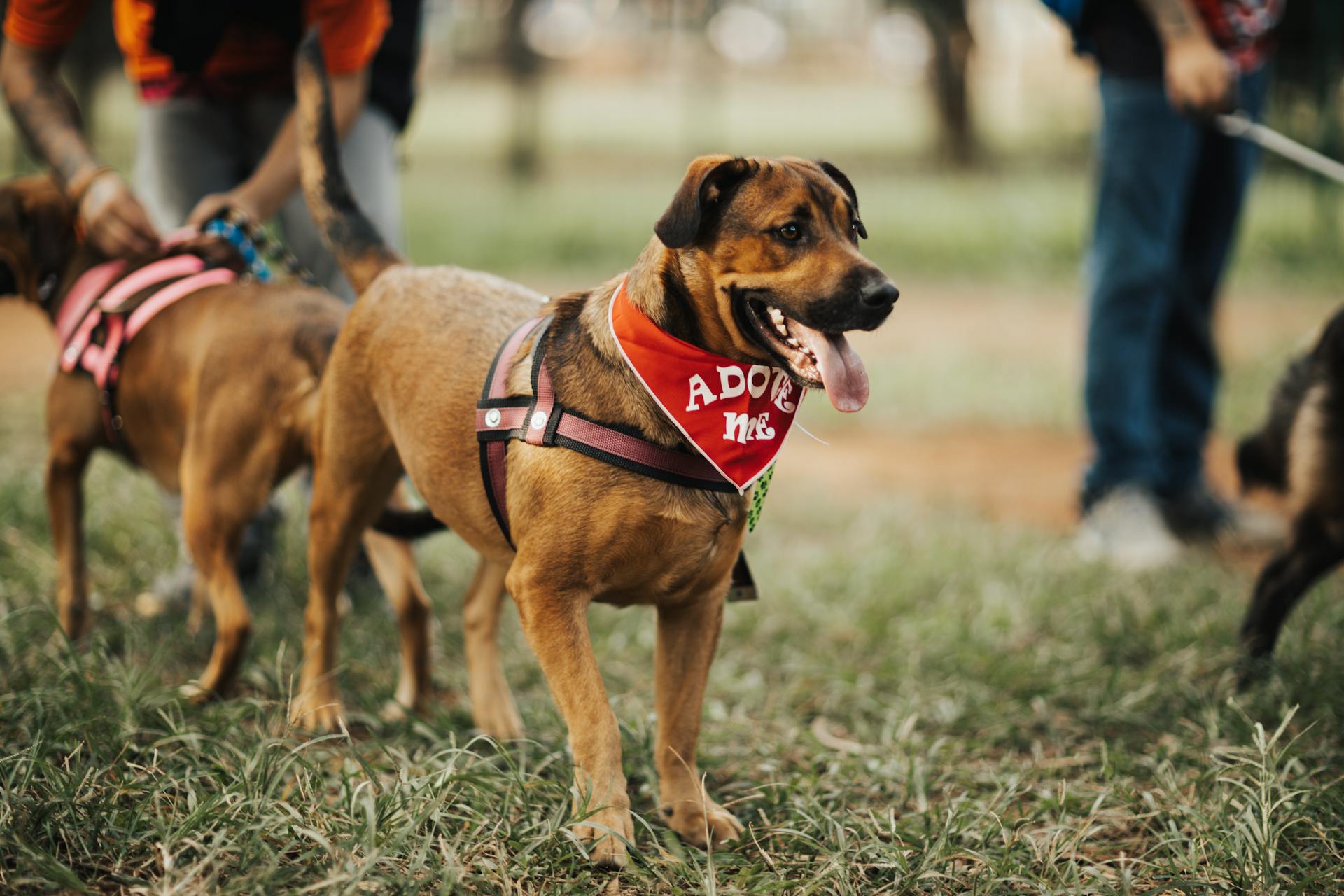
Identifying and eliminating stressors is crucial in treating pica in dogs. This may include other pets that cause stress, loud noises, or even too much time alone.
Working closely with a veterinarian, dog behaviorist, or competent trainer is essential in identifying your dog's triggers and retraining them to manage stress.
What You Can Do to Prevent
Preventing your dog from engaging in unwanted behaviors like pica or eating dirt can be a challenge, but there are steps you can take to decrease the chances of it becoming a regular occurrence.
First, it's essential to rule out underlying health problems by consulting with your veterinarian. They can perform tests and diagnostics to determine if there's an underlying ailment that's causing the behavior.
Feeding your dog a high-quality, veterinary-approved, complete, and balanced diet can help ensure they don't suffer nutritional deficiencies and attempt to eat dirt. This is especially important if your dog is prone to eating dirt, as it may be a sign of a nutritional imbalance.
Broaden your view: Dogs Eating Dirt and Grass
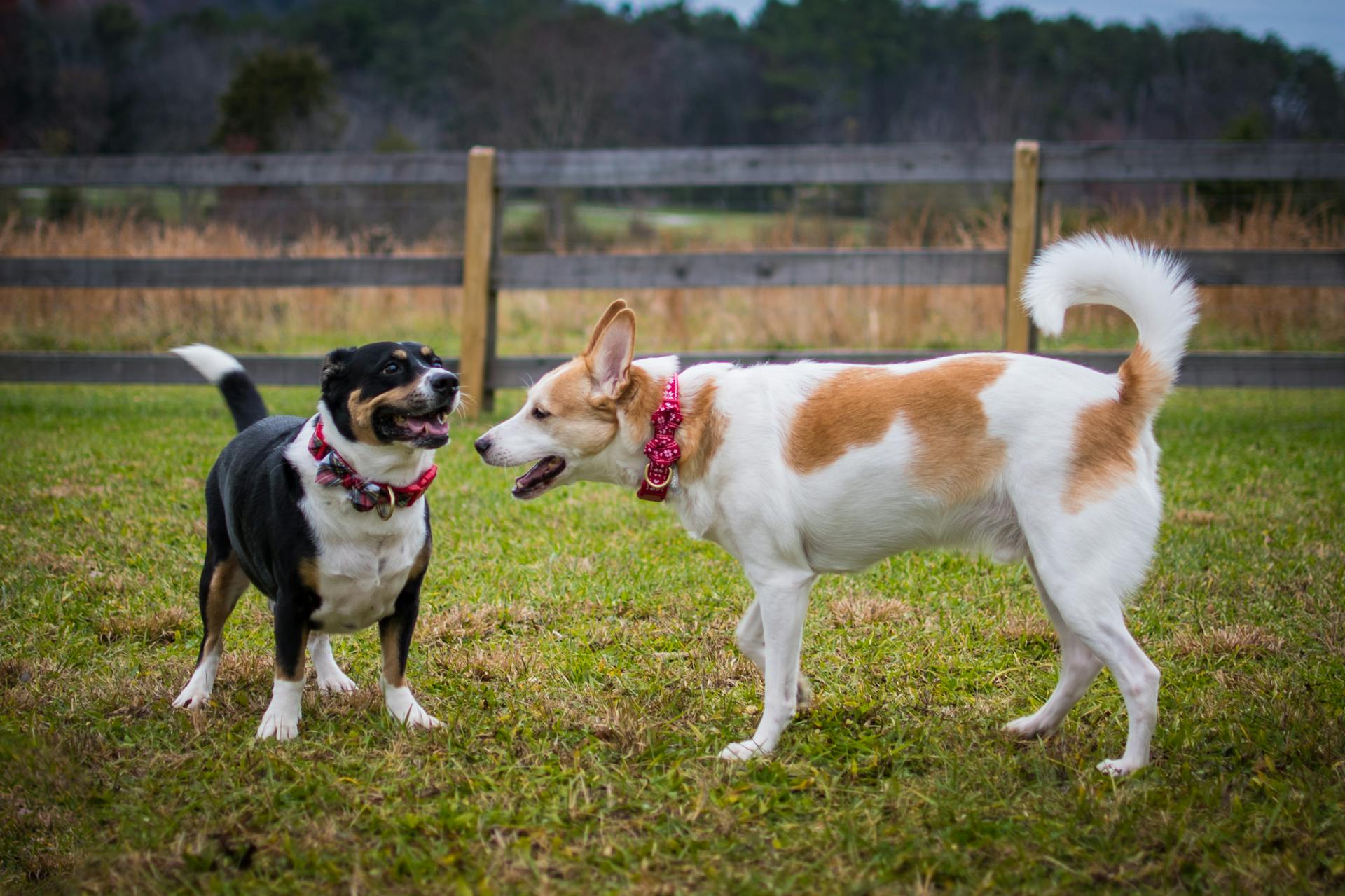
Providing ample exercise, chew toys, and mental stimulation, like puzzle toys, can prevent boredom and reduce the likelihood of your dog engaging in unwanted behaviors. Regular veterinary checkups and parasite prevention medication can also support your dog's overall health.
Supervising your dog when they're outside around dirt is crucial, as it can help you catch the behavior early on and intervene before it becomes a habit. Keeping indoor potted plants out of paws' reach can also help reduce the temptation to eat dirt.
Here are some ways to support your dog's health and decrease their desire to ingest dirt:
- Feeding a high-quality, veterinary-approved diet
- Providing regular veterinary checkups and parasite prevention medication
- Offering ample exercise, chew toys, and mental stimulation
- Supporting whole body wellness and gut health with veterinary-approved supplements
- Supervising your dog when they're outside around dirt
- Keeping indoor potted plants out of paws' reach
By taking these steps, you can help prevent your dog from engaging in unwanted behaviors and ensure they stay healthy and happy.
Foreign Body Ingestion Risks
Foreign body ingestion is a serious issue that can arise from dogs eating sand, dirt, or other non-food items. Some dogs, like my own Labrador who compulsively ate clothing, can develop a habit of eating inappropriate items, leading to repeated foreign body ingestion.
This behavior can be very upsetting and frustrating, and it can also be expensive, especially if your dog needs surgery to remove a foreign object from their stomach. Several dogs have had to undergo major surgery after eating a stomach full of pebbles on the beach, or swallowing cutlery or laundry.
Frequent ingestion of dirt, soil, or mud can lead to a variety of health issues, including intestinal parasite infestation and toxin ingestion. These health problems can be serious and even life-threatening.
Some common signs of foreign body ingestion include changes in bowel movements, diarrhea, vomiting, weight loss, lethargy, a distended abdomen, and decreased appetite. If you notice any of these symptoms in your dog, it's essential to seek veterinary attention immediately.
Here are some potential health risks associated with foreign body ingestion:
- Intestinal parasite infestation, including Giardia, hookworms, or roundworms
- Choking hazards from ingestion of rocks or other objects in the dirt
- Toxin ingestion, including pesticides or fertilizers
- GI impaction or blockage, which may require emergency surgery
- Damage to the GI tract from sharp objects, like rocks or sticks
- Stomach bloat
Possible Nutritional Deficiency
Dogs eating sand can be a sign of a nutritional deficiency, and it's essential to address this issue promptly.
Some dog foods lack the vital vitamins and minerals a dog needs to be happy and healthy, leading to boredom or tummy troubles. This can cause your dog to search for alternative snacks, like sand.
A common misconception is that expensive dog food is always high-quality, but this isn't the case. Price and exclusivity don't equal complete and balanced dog nutrition.
Feeding your dog the wrong food can have dire consequences for their health, including vitamin or mineral deficiencies. Ensuring your pet's food is AAFCO-approved for their breed and life stage will prevent them from suffering health problems due to a lack of proper vitamins and minerals.
Some nutritional deficiencies that can lead to dirt consumption include sodium, iron, or calcium deficiencies, which may be present in soil. Excess dirt ingestion may also indicate hunger from underfeeding or feeding nutrient-deficient food.
Here are some possible nutritional deficiencies that can cause dogs to eat sand:
- Sodium deficiency
- Iron deficiency
- Calcium deficiency
Regular dirt eating necessitates a checkup with your veterinarian to rule out underlying medical or behavioral problems. Your vet will perform a nose-to-tail exam, and blood work may be recommended to rule out underlying causes, like anemia or metabolic disease.
Behavioral Reasons
Dogs eat dirt due to underlying behavioral issues. These issues can stem from stress and boredom, which are common problems in dogs.
Some dogs, especially youngsters and puppies, may eat dirt out of pure boredom, which can be caused by a lack of exercise, being cooped up in a kennel during the day, not enough playtime, or a lack of proper social interaction.
Dogs, like humans, can also have obsessive-compulsive disorder, which may lead to eating dirt obsessively. If you suspect OCD or a related behavior disorder, consult with your holistic vet or an animal behaviorist.
Dogs enjoy jobs and daily purposes, especially high-energy breeds, and need mental stimulation to prevent boredom. Providing your dog with a job, such as doggie day care, can help alleviate this issue.
Behavioral Reasons
Dogs, like people, can suffer from stress and boredom, leading them to engage in strange behaviors like eating dirt.
Some dogs may eat dirt simply because they are bored, lacking exercise, playtime, or proper social interaction.
A dog stuck at home all day, especially a high-energy breed, may resort to eating dirt out of sheer boredom.
Dogs need a job and a daily purpose, just like humans, to keep them engaged and stimulated.
Providing your dog with stimulating toys and activities can help alleviate boredom and prevent dirt-eating.
In some cases, dogs may develop obsessive-compulsive disorder (OCD), leading them to engage in repetitive behaviors like eating dirt.
If you suspect your dog has OCD, consult with a holistic vet or an animal behaviorist for guidance.
Here are some common signs of boredom in dogs:
• Lack of exercise
• Insufficient playtime
• Cooped-up living arrangements
• Inadequate social interaction
By addressing these issues and providing your dog with a fulfilling life, you can help prevent dirt-eating and other behavioral problems.
Why Do Puppies Growl?
Puppies growl for a variety of reasons, just like they eat stones as a way to explore new sensations with their mouths.
Exploration is a key part of a puppy's development, and it's not limited to eating stones. Puppies also use their mouths to explore new sensations, which can sometimes lead to unwanted behaviors.
If left alone with a small object, most puppies will simply spit it out when they get bored with it. But if they swallow it, it's likely because they feel like no one else can take it away from them.
Puppies often grow out of eating rubbish, but if the behavior persists into adulthood, it can be much more serious. Similarly, if a puppy's growling persists, it's worth investigating the underlying cause.
For more insights, see: Puppy Zoomies Biting Growling
General Information
Dogs eating sand is a relatively common behavior, especially in puppies or adolescent dogs that are just exploring their surroundings. They often follow their nose, leading them to dig, sniff, and sometimes consume the dirt they find.
Some dogs may eat sand as a normal part of their discovery process, but it's essential to pay attention to the frequency and any accompanying symptoms. If your dog is constantly eating dirt, it may be a sign of a underlying medical issue that needs attention.
Expand your knowledge: Dog Attention Seeking Behaviour
What Does It Mean When
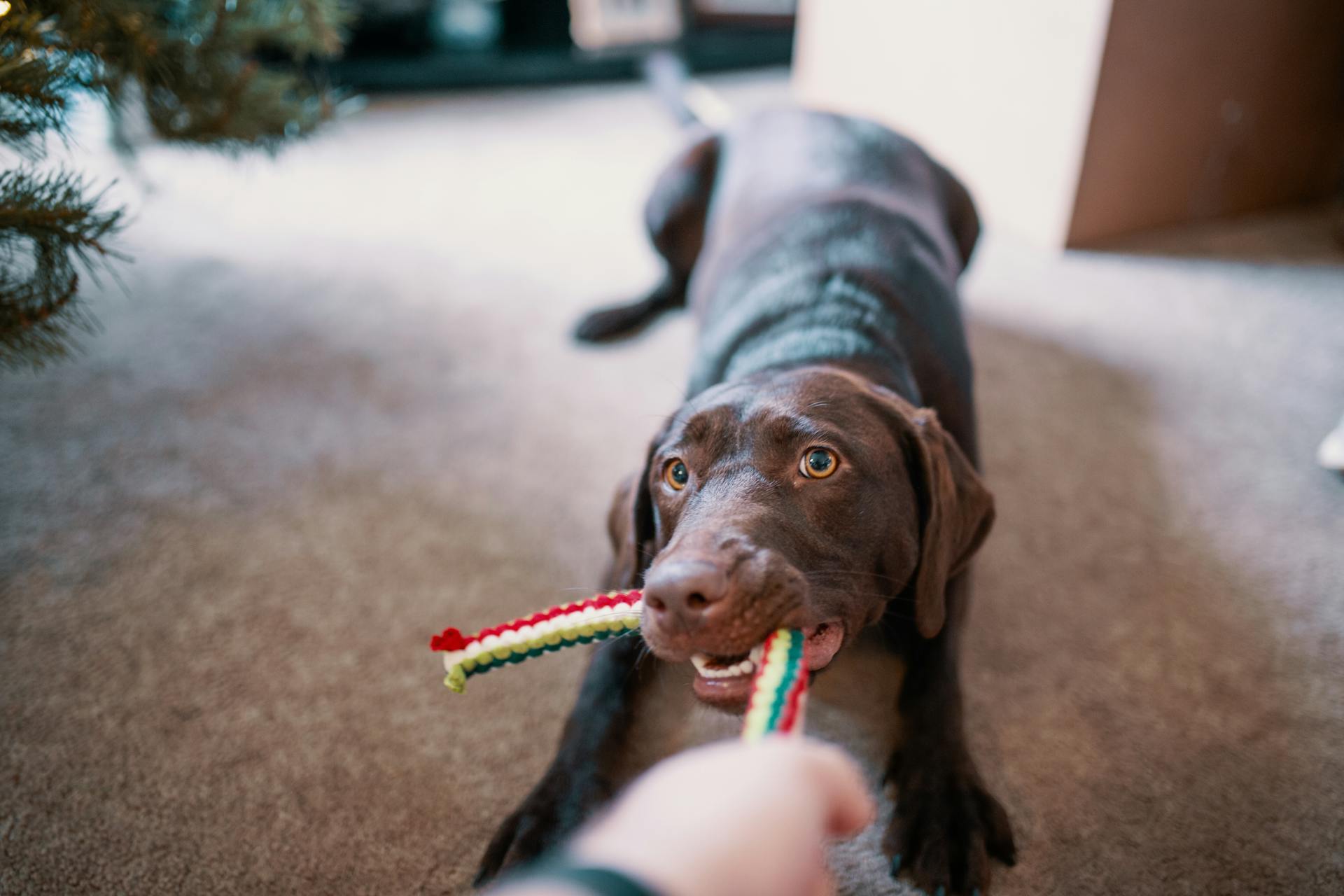
Dogs often eat dirt as part of their natural curiosity and exploration of the world around them. This behavior is especially common in puppies and adolescent dogs.
Dogs follow their nose and may end up digging, sniffing, or nibbling on their discoveries, which can include dirt.
A dog's constant eating of dirt can be a sign of a medical issue that needs immediate attention.
Reducing Food Waste
Using a trash can with a locking lid is a simple yet effective way to keep your dog out of the trash at home. This will prevent them from eating inedible items that can be found in the trash.
If your dog is eating dirt ravenously, it's essential to get them checked at the vet to rule out any medical conditions that could cause pica, a condition characterized by eating inedible materials.
Distracting your dog from dirt, stones, and other trash by offering a treat or a chew toy can also help reduce the likelihood of them eating inedible items.
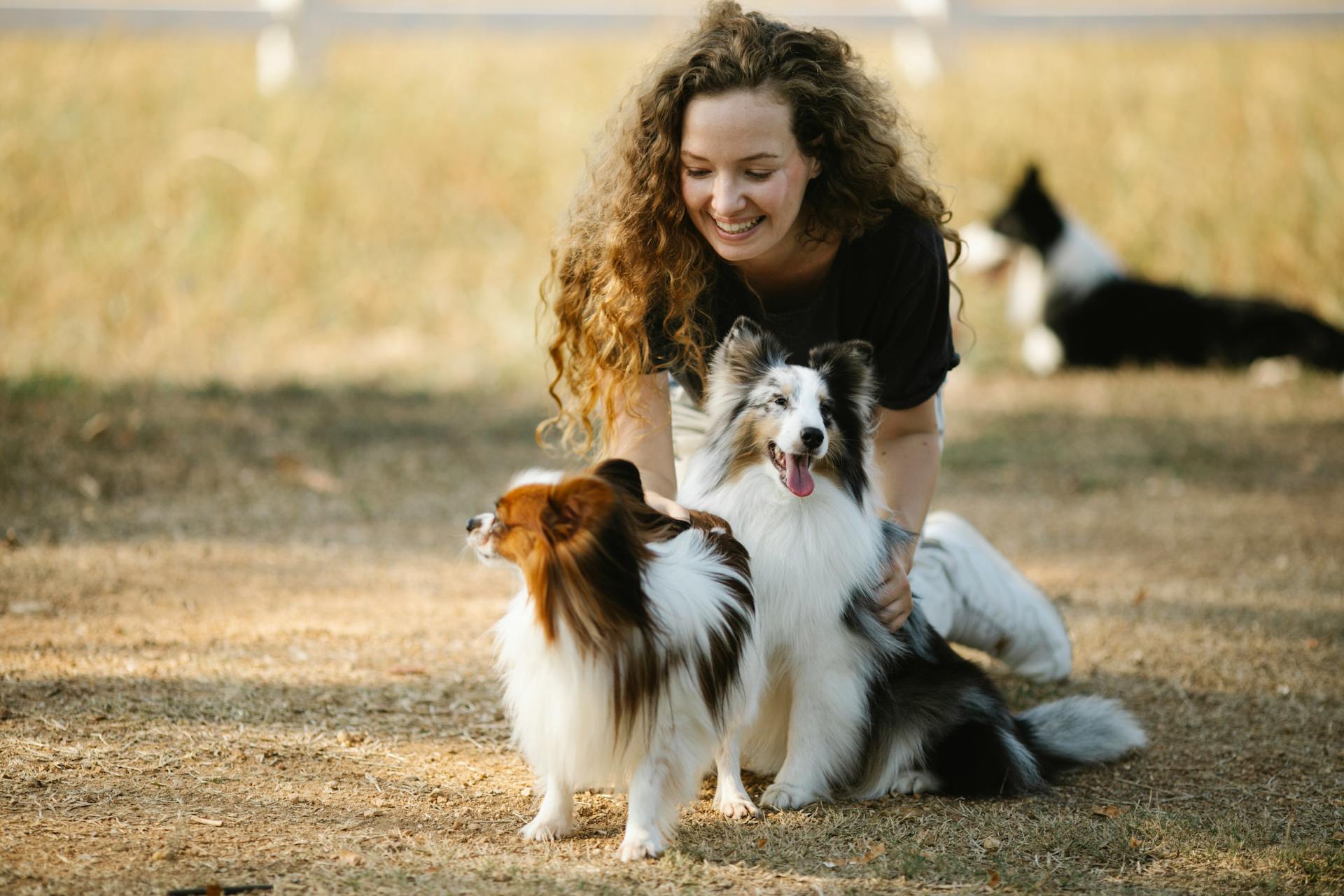
Providing your dog with enough exercise every day can reduce boredom and the desire to dig or eat trash. Aim for at least a 30-minute walk or playtime with your dog.
A simple way to reduce food waste is to make sure your dog gets enough exercise and mental stimulation to prevent boredom. This can be achieved through regular walks, playtime, and interactive toys.
If you're struggling to keep your dog away from trash, consider investing in a dog-proof trash can or a locking lid for your regular trash can.
Here are some tips for reducing food waste and keeping your dog safe:
- Use a trash can with a locking lid
- Provide regular exercise and mental stimulation
- Offer distractions like treats or chew toys
- Supervise your dog closely to prevent them from eating trash
By following these simple tips, you can reduce food waste and keep your dog safe from eating inedible items.
Frequently Asked Questions
Is beach sand toxic to dogs?
No, beach sand is not toxic to dogs, but ingesting too much sand can cause a serious health issue called sand impaction.
Why do dogs crave sand?
Dogs may crave sand due to a taste preference or a search for essential minerals, vitamins, and probiotic bacteria lacking in their diet. Understanding the underlying reason is key to addressing this behavior.
Can sand build up in dogs stomach?
Yes, sand can build up in a dog's intestines, causing a blockage known as sand impaction, which can lead to serious health issues if left untreated. If you suspect your dog has ingested sand, look out for symptoms like vomiting, constipation, and lethargy.
Sources
- https://petcube.com/blog/pica-in-dogs/
- https://www.thelabradorsite.com/why-do-dogs-eat-dirt/
- https://www.dailypaws.com/dogs-puppies/dog-behavior/why-do-dogs-eat-dirt
- https://nativepet.com/blogs/health/why-do-dogs-eat-dirt-reasons-dangers-treatment-and-prevention
- https://www.dogsnaturallymagazine.com/5-reasons-dogs-eat-dirt/
Featured Images: pexels.com


